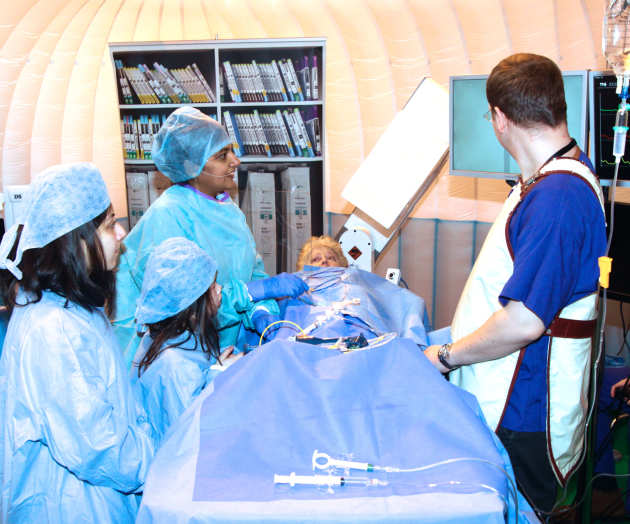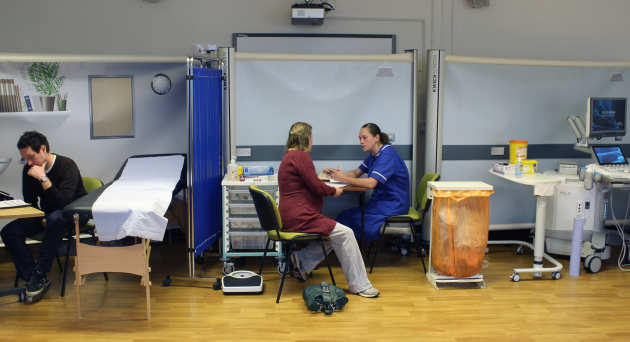Our research has impact on many different aspects of healthcare, including clinical practices and processes, health systems, and the experiences of the people involved. Many of our strands of work have developed iteratively over a number of years, via a series of funded research projects. Some case studies are presented below.
Interventional cardiology
 The starting point for this strand of work was a 2011 project funded by the Wellcome Trust entitled 'Your heart in their hands, your hand in their heart'. This involved the development of a coronary care simulation which featured a conscious patient undergoing a balloon angioplasty following a heart attack.
The starting point for this strand of work was a 2011 project funded by the Wellcome Trust entitled 'Your heart in their hands, your hand in their heart'. This involved the development of a coronary care simulation which featured a conscious patient undergoing a balloon angioplasty following a heart attack.
The simulation explored the dual perspectives of patient and clinician and was delivered to audiences at a number of public engagement events. Members of the public were able to participate in the simulation as both patient and clinician, as shown in the image on the left, and gain a better understanding of the procedure from both viewpoints.
Alongside this our group was developing haptic technology, allied with computer visualisations, to create a realistic simulation of angiography procedures for training cardiologists.
These two strands of work were brought together in 2014 with the launch of the Imperial Cardiology Training Programme (iCAST). This provides cardiology personnel with highly realistic simulation-based training that can translate into real clinical practice.
Find out more about our cardiology training project
Sequential Simulation
The concept of Sequential Simulation (SqS) was born out of trauma simulations we designed and delivered in 2009/10. These led to the heart attack pathway simulation detailed in the interventional cardiology case study which in turn led to discussions around developing care pathway simulations for other medical conditions, including paediatric asthma and sickle cell disease.
 SqS aims to recreate scenes from a patient's journey through a specific care pathway. This represents an evolution in the use of simulation, which traditionally focuses on a single clinical encounter. Focusing on key points in the pathway, and the transitions between them, allows the entire patient journey through the healthcare system to be brought into view, enabling identification of problems within the system.
SqS aims to recreate scenes from a patient's journey through a specific care pathway. This represents an evolution in the use of simulation, which traditionally focuses on a single clinical encounter. Focusing on key points in the pathway, and the transitions between them, allows the entire patient journey through the healthcare system to be brought into view, enabling identification of problems within the system.
Our work using SqS has had real impact on the implementation of change within the NHS. For example, we have collaborated with a number of Clinical Commissioning Groups in the London area, using SqS to simulate how a new integrated care model would work in practice. We have also delivered simulation events to educate GP receptionists about integrated care and how their role fits within the system. Working in partnership with another research group within Imperial College, we held a simulation workshop for patients and clinicians to explore how a new diagnostic test for oesophageal cancer could be implemented.
Find out more about Sequential Simulation